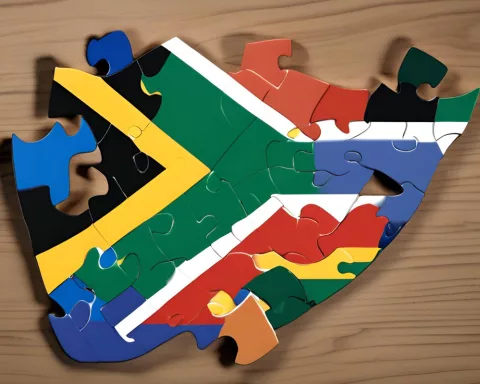As South Africa marks 29 years since the inauguration of Nelson Mandela, the nation has made great strides in building a more inclusive and equitable society. One essential element in this journey is the role of the National Statistical System (NSS) in driving development planning and monitoring.
The Significance of NSS
The NSS, overseen by Statistics South Africa (Stats SA), has played an integral role in tracking the country’s progress towards developmental goals outlined in the National Development Plan. As per Dr. Sanga Dimitri, “good statistics are required to assess, identify issues, support interventions, forecast the future, monitor progress, and evaluate the results and impacts of policies and programs.”
Key Indicators of NSS
In the face of global crises such as the COVID-19 pandemic, domestic challenges like energy security and extreme weather disasters, and the conflict in Ukraine, South Africa has relied on the NSS to inform policy responses and drive inclusive growth. For instance, the Quarterly Labour Force Survey (QLFS) has enabled the government to implement youth employment initiatives like the Presidential Employment Stimulus and the Employment Tax Incentive.
Another critical indicator, the Consumer Price Index (CPI), has informed governmental actions to provide relief for households and businesses by adjusting fuel levies and extending the R350 Social Relief of Distress grant. The CPI also guides the South African Reserve Bank in adjusting the repo rate.
NSS Integrity and Independence
South Africa’s official statistics’ integrity and independence are ensured by the Statistics Act (6 of 1999), which guarantees that Stats SA provides trustworthy data. The release of Census 2022 results in the second half of 2023 will provide new baseline data for the nation’s demographic, economic, and social dynamics, informing planning, policy formulation, budget allocation, and program monitoring and evaluation.
Future Plans of NSS
In the upcoming 2023/24 Work Programme, Stats SA will focus on delivering statistics that the country needs, including economic statistics and population and social statistics. Additionally, the Income and Expenditure Survey will provide data on the poverty situation in South Africa, enabling policymakers to understand the scale, characteristics, and root causes of poverty and unemployment.
The draft Statistics Act Amendment Bill, to be presented in Parliament, will propose a reconfiguration and coordination of the NSS to better achieve its vision of “Improving lives through data ecosystems.” The strategic plan includes four outcomes: insightful data, an agile operating model, an interconnected statistical system, and organizational transformation capabilities.
The role of NSS in South Africa’s development journey is crucial. By providing reliable data and statistics, it serves as both support and illumination of the nation’s progress towards inclusive development. South Africa must prioritize and invest in its National Statistical System to ensure that it can adequately guide policy formulation, resource allocation, and performance monitoring. In doing so, the country will be better equipped to face the challenges and opportunities that lie ahead on its path to a more inclusive and prosperous future.












